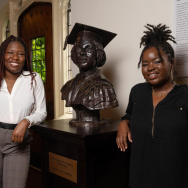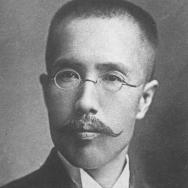Each spring, the University of Chicago confers degrees on graduating students in a ceremony known as Convocation.
Literally a “calling together,” Convocation assembles all elements of the University community: degree candidates and their families and friends, faculty, deans, officers and trustees of the University, the provost and the president.
The first Convocation was celebrated in January 1893 under founding President William Rainey Harper. Harper told those present that the ceremony was intended “to bind together into a unity the many complex and diverging forms of activity which constitute our university life and work.”
The University Convocation is held annually each June to mark the end of the academic year. Additional convocation ceremonies may be held to inaugurate University presidents or to commemorate significant institutional milestones.
The 537th Convocation will be held on the Main Quadrangle on Saturday, June 3. The University-wide ceremony, involving degree candidates from all divisions and schools, will also include the presentation of honorary degrees and an address from a faculty speaker.
The inaugural Convocation address was given by the first head of the History Department, Prof. Hermann Eduard von Holst, and was titled “The Need of Universities in the United States.”
Convocation speakers at first were often public figures, representatives of other colleges and universities or the president of the University.
On April 2, 1896, Prince Serge Wolkonsky of the Russian Empire delivered a Convocation address titled “Memory and Responsiveness as Instruments of Culture.” On Aug. 27, 1954, noted theologian H. Richard Niebuhr of Yale University Divinity School delivered the address “Theology – not Queen but Servant.”
Since 1970, all Convocation addresses have been given by members of the UChicago faculty.
Though he did not give the Convocation address, President Bill Clinton spoke at the June 12, 1999, College Convocation.
In his speech, Clinton talked about the growing internet, which was still in its infancy, and also said: “We have got to join together to learn how to alleviate poverty around the world, expand the middle class everywhere, provide more economic opportunity for all of you who are so well-positioned, and still understand that we can reduce pollution and environmental problems and global warming. It is not true anymore that you have to destroy the environment to grow the economy, and you can lead the charge in turning the world away from that.”
This year, renowned legal scholar Prof. Tom Ginsburg will give the Convocation address.
President Paul Alivisatos will verbally confer degrees on candidates by division and school. Each division and school will host a separate ceremony at which degree candidates will be honored.
For more information about the 2023 celebration, visit the Convocation website.
—Compiled from the University of Chicago Office of University Events and Ceremonies and the White House Archives.

